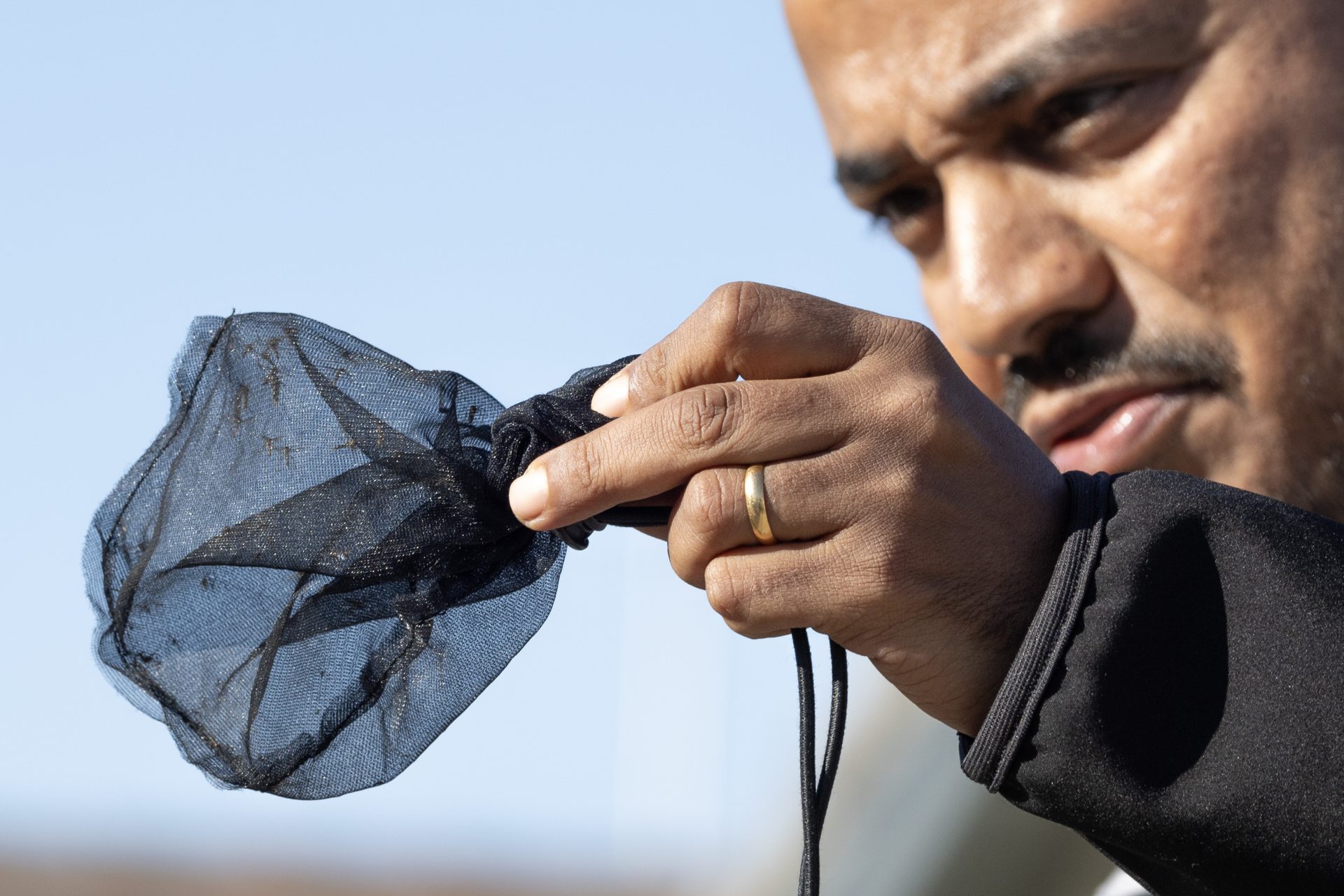Use the power of science to keep those pesky mosquitoes away
Don't let these tiny vampires ruin your sunny days! Equip yourself with our scientifically-backed guide to combat these pesky buzzers. With the latest research and expert insights, we'll show you effective ways to keep mosquitoes at bay and debunk the myths that don't hold up.
According to the US Centers for Disease Control (CDC), insect repellents containing DEET offer the best on-skin protection against mosquito bites. The concentration level doesn't indicate that a repellent is stronger, but rather that it will last longer. However, concentrations over 50% provide no extra protection and are even banned in the EU for that reason.
DEET is generally safe to apply on the skin, as long as it’s used correctly. But it can be toxic, so be careful not to breathe it in, swallow it, or get it in your eyes. The CDC also advises against putting it on wounds or broken skin. Researchers haven't found evidence that it causes cancer. It can, however, damage plastics (like your favorite sunglasses).
Thermacell products use heat to activate a repellent that keeps mosquitoes away beyond a certain radius (15 or 20 feet). These models are silent and odorless, and the New York Times' independent reviewer Wirecutter rates them as the best gear for keeping yourself bite-free while relaxing in the outdoors. Similar brands also exist.
Image: Thermacell Repellents/YouTube
Thermacell is approved by the US Environmental Protection Agency (EPA) and uses allethrin and metofluthrin to keep mosquitoes away. While the device has been deemed safe for outdoor use, it shouldn't be used indoors or around uncovered food. It is however, touted as safe to breathe in for your furry friends too.
Image: Thermacell Repellents/YouTube
Picaridin (icaridin outside the US) is a synthetic insect repellent ingredient that has been available in the US since 2005. Research has found that 20% concentrations are effective and comparable to DEET when fighting off ticks and mosquitoes, although it hasn’t been as extensively studied due to its relative newness.
The NYT’s Wirecutter recommends Picaridin formulations over DEET because they are as effective but don’t smell as bad or feel as oily as DEET. They also don’t damage plastics or sealants. However, it is still classified as slightly toxic if ingested, so use it wisely.
The EPA has approved other repellents for your skin too: IR3535, Oil of lemon eucalyptus (OLE), Para-menthane-diol (PMD), and 2-undecanone. The CDC says that any of those bug sprays are effective and safe for even pregnant and breastfeeding women. However, Wirecutter still suggests using Picaridin or DEET due to other downsides like smell.
The CDC warns to always apply insect repellent after sunscreen. Why? Because the sunscreen will alter the smell of the bug spray, which is a large part of what makes it effective. Another study also found that applying both products at the same time (within 20 minutes) can increase potential side effects, so you may want to wait.
While a fan may not be enough to battle a thick cloud of mosquitoes, they do help. That’s because they redirect scents and carbon dioxide cues… and the breeze makes it more difficult for mosquitoes to fly.
Mosquito coils work like incense and can contain insecticides. Some brands do work, but generally are less effective than Thermacell-type repellents. They can also be fire hazards and the smoke can be irritating.
The CDC also recommends wearing loose-fitting long-sleeved shirts and pants to dodge bites. Tightly woven fabrics and wearing overlapping layers offer further protection, as mosquitos have no problem biting you through skintight and thin fabrics like leggings. Also, mosquitoes are more attracted to dark colors than light ones. If the mosquitos are really bad, you can also use netting to protect your face.
If you want an extra layer of protection from mosquitos and ticks, Permethrin is your best choice to apply to your clothes, according to the CDC. You can apply it on fabrics — from tents to backpacks to shoes and pants. It holds up for around six washes, but everything treated needs a thick coat of spray and time to dry fully.
Sometimes offense is the best defense. Since mosquitoes multiply quickly and in even tiny bits of water, you should check the area you like to enjoy weekly for standing water. Dump everything you can and consider drilling little holes in the bottoms of containers like garbage cans so they don’t create the perfect breeding grounds.
While these don’t repel flying bugs like mosquitos, they don’t attract them either. These lightbulbs are just like normal ones but use filtered yellow glass to save you (and bugs) from unpleasant mix-ups. They’re designed to use on places like patios and backyards and are recommended by experts from the American Mosquito Control Association (AMCA).
Image: Keeping Bugs Away/Yellow Bulb Review/ Reviewing Literally Everything/Youtube
The AMCA says that citronella candles offer no more protection than regular candles that produce smoke. And a study in the Journal of Insect Science found no evidence that they repelled a certain type of pesky mosquito.
These bug bombs and foggers are akin to the nuclear option— used to indiscriminately kill whatever insects are around. This isn't a repellent, but all-out war, and whatever is caught in the path — desired or not — can be killed. This option is generally NOT recommended for mosquitos.
When it comes to mosquito control, bug zappers can also be not only ineffective but harmful because they kill all kinds of bugs (friends and foes). A Notre Dame study found that after bug zapping for an entire summer, just 4% to 6% of the insects annihilated were mosquitoes.
Joe Conlon from the AMCA wrote that these mosquito traps also fail to live up to the hype. Although they do catch some mosquitos, they aren't as attractive to mosquitoes as humans are, whether UV based or propane-based, and will generall fail to make a significant dent in your summertime battle.
Many products, including apps you can download on your phone, promise they emit an ultrasonic frequency that makes mosquitos go elsewhere. It sounds too good to be true, and probably is. Conlon wrote that at least 10 studies in 15 years have unanimously shown these ultrasonic devices have no value whatsoever.
Image: Do ultrasound mosquito repellers work?/Biogents AG/YouTube
Some marketing suggests that just by wearing a bracelet or patch with mosquito repellent is enough to keep the bugs away. Unfortunately, Conlon told the NYT that’s not the case either, as mosquitos may stay away from the patch or bracelet, but will still land on the rest of you.
More for you
Top Stories


































